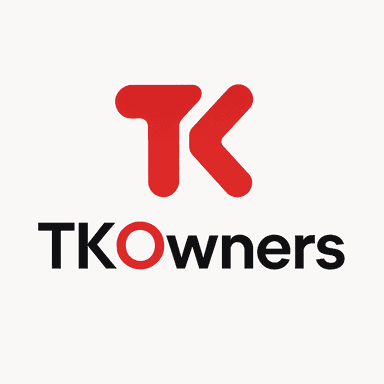Overview / Executive Summary
Static photos are out. Jittery GoPro walks are boring. And 3D virtual tours? Honestly, most people skip them. What buyers want is to feel the flow of a home before they ever set foot in it. Enter the indoor real estate drone walkthrough – a smooth, cinematic, room‑to‑room flythrough that shows exactly how a house lives. With drones getting smaller, safer, and smarter, and with agents desperate to stand out in crowded markets, this business hits right on time. You don’t need 50 clients. You need five agents with 10 listings a month. Then it snowballs.
Value Proposition
We give real estate agents a powerful, premium visual asset: smooth, high‑quality indoor drone video tours that make listings more clickable, more watchable, and more likely to sell fast.
- Indoor‑safe drone footage of entire home layouts
- One‑take cinematic walkthroughs that feel like a personal tour
- Editing included, no hassle for the agent
- Faster turnaround than most 3D or photo packages
- FAA‑certified operations to keep everything legal
Compared to static photos or clunky 3D tours, our service is faster, more engaging, and actually affordable.
Target Audience
Primary
- Real estate agents and brokers who want to stand out in competitive markets
- Especially solo agents or small teams who don’t have in‑house media help
- Agents listing mid‑range to luxury properties where visuals matter most
Secondary
- Property developers launching new builds or spec homes
- Property managers and short‑term rental owners wanting marketing assets
- Brokerages and MLS networks looking to bundle media into listings
These are people trying to sell property faster and look more professional doing it. Our drone walkthroughs give them an edge.
Market Landscape
The real estate drone media market is already growing fast. Listings with drone media:
- Sell up to 68% faster
- Get 80% more buyer engagement online
Aerial footage is common. Indoor footage? Not yet. That’s the gap.
We’re tapping into:
- $1.5B+ real estate marketing spend segment in the U.S.
- A growing demand for immersive listing content
- Widespread dissatisfaction with old‑school media formats (slideshows, 3D floorplans)
Competitors exist, but few are offering indoor drone video tours as a standalone product. And even fewer are doing it well.
SEO Opportunities
We’re targeting real estate professionals who are actively looking for ways to upgrade their listings.
- indoor drone walkthrough
- real estate drone tour
- drone video for listings
- real estate video service near me
- property drone video
These keywords are high‑intent, low‑competition, and very specific. Our site content, demo videos, and service pages will be built around these terms to pull in organic leads locally and regionally.
Go‑To‑Market Strategy
Step 1: Get FAA Certified + Equipment
- FAA Part 107 certification
- Buy indoor‑safe drones like the DJI Avata or similar
- Use FPV drones for dynamic motion + gimbal‑stabilized cameras for smooth shots
Step 2: Build the Portfolio
- Film 5 to 10 walkthroughs for free in exchange for testimonials
- Focus on staged homes, luxury listings, and properties with cool layouts
Step 3: Target Local Agents
- DM every agent in your city on Instagram and LinkedIn with a teaser video
- Go to broker open houses with printed flyers and QR demos
- Offer “first one free” or 50% off to build trust fast
Step 4: Build Ongoing Relationships
- Offer bundled deals for multiple listings
- Create retainer packages for active agents
- Set up referral bonuses for clients who bring other agents on board
The first 100 paying gigs come from Instagram DMs, agent meetups, and word‑of‑mouth via brokers.
Monetization Plan
Standard Pricing
- Small property (under 1,000 sq ft): $150 – $300
- Mid‑size (1,000 to 3,000 sq ft): $300 – $500
- Large or luxury homes (3,000+ sq ft): $500+
Add‑Ons
- Edited aerial footage
- Floor plan overlays
- 24‑hour turnaround
- Social media reels (vertical clips)
- Listing site video hosting
Recurring Models
- Monthly packages for brokerages with 5+ listings
- Tiered subscriptions with bundled discounts and early access to shoots
There’s room for upsell, resell, and monthly revenue all without holding inventory.
Financial Forecast
Year 1 estimate for a solo operator
- Startup costs: $7,500 (Drone, FAA cert, liability insurance, editing software, business website)
- Revenue: $80,000 (Based on 200 walkthroughs at $400 average per project)
- COGS (travel, storage, insurance, gear upkeep): $20,000
- Gross margin: 75%
- Net profit: ~$40,000 – $45,000
Break‑even within 6 to 9 months assuming 4–6 projects per month, scaling up to 15+ monthly. This is a solo‑friendly service business with room to grow into a team or regional operation.
Risks & Challenges
- Regulatory issues: Flying indoors for commercial use still requires FAA certification
- Privacy concerns: Need clear property access and agent consent for every shoot
- Crash risk: Indoors means tighter quarters proper piloting and drone selection are key
- Agent skepticism: Some agents are resistant to new media types. You’ll need demo reels and data to win them over
- Editing load: Video turnaround speed matters. Systems and templates are your friend
We mitigate all of this with training, trust‑building, and a professional frontend.
Why It’ll Work
People are visual. Real estate is emotional. A smooth drone walkthrough gives buyers the feeling of “I can see myself here” and that sells houses. The tech is here, the market is ready, and the competition hasn’t figured out how to do it right indoors.
This business solves a problem agents actually have: boring listing content. And it solves it with style, speed, and a real return on investment.
Buy a drone. Get certified. Walk through 10 houses. You’ll have a business by the end of the month.
